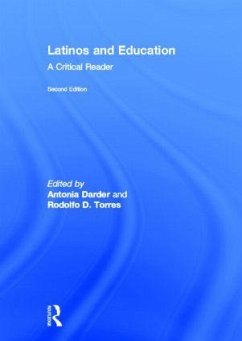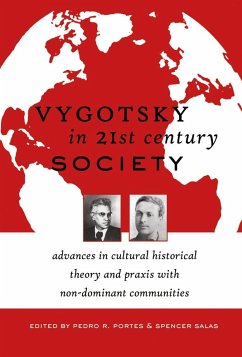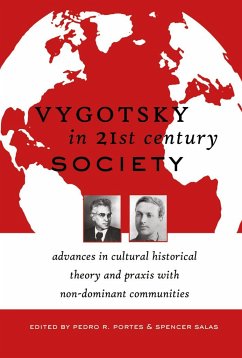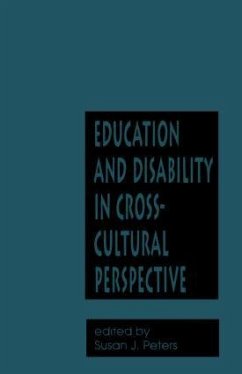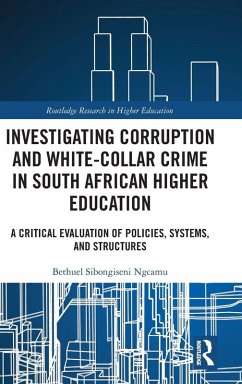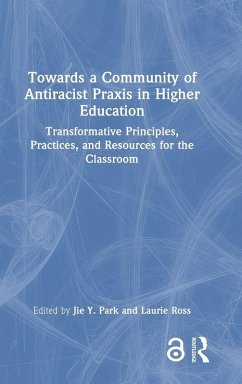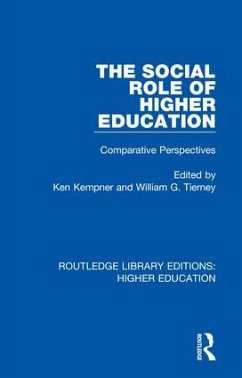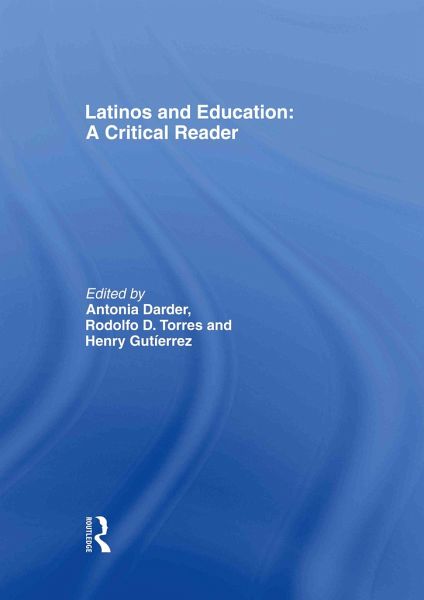
Latinos and Education
A Critical Reader
Herausgeber: Darder, Antonia; Gutiérrez, Henry; Torres, Rodolfo D.
Versandkostenfrei!
Versandfertig in 1-2 Wochen
142,99 €
inkl. MwSt.

PAYBACK Punkte
71 °P sammeln!
Despite generations of protest, activism, and reform efforts, Latinos continue to be among the nation's most educationally disadvantaged and economically disenfranchised groups. Challenging static notions of culture, identity, and language, Latinos, and Education addresses this reality within the context of a rapidly changing economy and society. This reader establishes a clear link between educational practice and the structural dimensions which shape institutional life, and calls for the development of a new language that moves beyond disciplinary and racialized categories of difference and ...
Despite generations of protest, activism, and reform efforts, Latinos continue to be among the nation's most educationally disadvantaged and economically disenfranchised groups. Challenging static notions of culture, identity, and language, Latinos, and Education addresses this reality within the context of a rapidly changing economy and society. This reader establishes a clear link between educational practice and the structural dimensions which shape institutional life, and calls for the development of a new language that moves beyond disciplinary and racialized categories of difference and structural inequality. These highly accessible essays, which achieve a useful balance of theory and practice, discuss themes such as political economy, historical views of Latinos and schooling, identity, the politics of language, cultural democracy in the classroom, community involvement, and Latinos in higher education. Diverse Latino and Chicano viewpoints are all included, and the volume reflects the educational experiences of students in urban centers like New York and Chicago, as well as the South, Southwest, and West.



